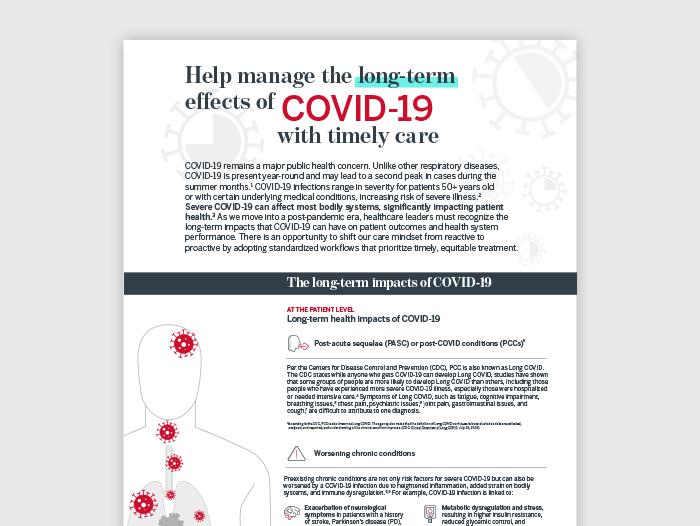Auto logout in seconds.
Continue LogoutChildren born to mothers who had COVID-19 during pregnancy had a higher risk of developing autism and other neurological issues, according to a recent study published in the journal Obstetrics and Gynecology — findings that experts say emphasize the importance of receiving a COVID-19 vaccination during pregnancy.
Study details
For the study, researchers from Massachusetts General Hospital examined the medical records of more than 18,100 women who gave birth between March 1, 2020, and May 31, 2021.
Among 861 women who tested positive for COVID-19 during pregnancy, 140, just over 16%, gave birth to a child who later received a neurodevelopment diagnosis by the age of three such as autism or delays in speech and motor development. Meanwhile, fewer than 10% of the remaining children from pregnancies that did not have COVID-19 received a similar diagnosis.
According to the researchers, having a COVID-19 infection during pregnancy was associated with a 29% increased risk of a neurodevelopmental condition in children, after adjusting for other risk factors.
The researchers noted that very few of the women in the study had received a COVID-19 vaccine, as they were not widely available at the time.
The researchers also cautioned that the findings don't prove a causal relationship between COVID-19 and the neurodevelopmental conditions diagnosed in children but instead signal an association between maternal infection and those outcomes.
Discussion
Scientists say it's rare for respiratory viruses like the flu or COVID-19 to cross the placental barrier, and that the impact on the fetus could be because of a mother's immune response. One possible cause could be inflammation, which results in the release of signaling molecules that could influence how neurons in the brain grow, connect, and migrate.
"If the fetus's immune system gets really revved up, that could have downstream consequences, not just for the developing brain, but also for the metabolic system, the liver, the pancreas, the heart, the adipose tissue," said Andrea Edlow, a physician scientist at Massachusetts General Hospital, associate professor of obstetrics and gynecology at Harvard Medical School, and a coauthor on the study.
Edlow noted that, while the study showed children born to a woman with a COVID-19 infection during pregnancy had an increased risk of neurodevelopmental issues, the overall risk remains extremely low.
"It's not that every pregnant woman with COVID-19 in pregnancy needs to think that her child is going to have autism," Edlow said. "Overall, the absolute risk is not extremely high."
Experts said the study's results emphasize the importance of COVID-19 vaccination during pregnancy and noted that protecting expectant mothers safeguards both their health and the health of their babies. The study also comes at a time in which COVID-19 vaccination rates have declined.
Earlier this year, HHS Secretary Robert F. Kennedy Jr. announced that CDC would no longer recommend that healthy pregnant women receive the COVID-19 vaccine, an announcement that prompted widespread criticism from public health experts.
The American College of Obstetricians and Gynecologists recommends that pregnant people get vaccinated against COVID-19, and federal officials currently say that all Americans should consult a medical provider about getting a COVID-19 vaccine, regardless of their risk factors.
Mary Ann Comunale, an associate professor at Drexel University's College of Medicine, said the study provides important evidence-based information for discussions between clinicians and patients.
"This is particularly important in the current climate of vaccine hesitancy," she said.
"Parental awareness of the potential for adverse child neurodevelopmental outcomes after COVID-19 in pregnancy is key," said Lydia Shook, a maternal-fetal medicine specialist at Massachusetts General Hospital and lead author of the study. "By understanding the risks, parents can appropriately advocate for their children to have proper evaluation and support."
Some experts also noted limitations to the study. Lisa Croen, senior research scientist at the Kaiser Permanente Northern California Division of Research, said that maternal conditions like obesity, hypertension, and gestational diabetes were not controlled for in any of the analyses, "so findings could be confounded by these factors," she said.
Croen said that more research is needed but added that the results of the study do "provide additional, strong rationale for supporting COVID-19 vaccination in pregnancy."
(Ovalle/Cha, Washington Post, 10/30; Weixel, The Hill, 10/31)
Don't miss out on the latest Advisory Board insights
Create your free account to access 1 resource, including the latest research and webinars.
Want access without creating an account?
You have 1 free members-only resource remaining this month.
1 free members-only resources remaining
1 free members-only resources remaining
You've reached your limit of free insights
Become a member to access all of Advisory Board's resources, events, and experts
Never miss out on the latest innovative health care content tailored to you.
Benefits include:
You've reached your limit of free insights
Become a member to access all of Advisory Board's resources, events, and experts
Never miss out on the latest innovative health care content tailored to you.
Benefits include:
This content is available through your Curated Research partnership with Advisory Board. Click on ‘view this resource’ to read the full piece
Email ask@advisory.com to learn more
Click on ‘Become a Member’ to learn about the benefits of a Full-Access partnership with Advisory Board
Never miss out on the latest innovative health care content tailored to you.
Benefits Include:
This is for members only. Learn more.
Click on ‘Become a Member’ to learn about the benefits of a Full-Access partnership with Advisory Board
Never miss out on the latest innovative health care content tailored to you.


